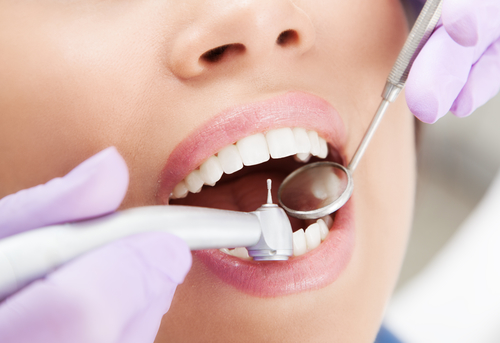
How often do you actually need to visit the dentist? We know the office isn’t most patients’ favorite place, and we want to help you get onto the exam schedule that makes the most sense. While there is an official recommendation for how often the “average” patients should visit, we’d love to give you more information so that you can engage with your case.
If you typically visit twice yearly, it might be time to change that. We’ve put together more information on different recommended exam schedules below. If it has been more than six months since you last visited, now is a great time to schedule your next appointment!
Figuring Out Your Perfect Exam Schedule
For High Risk Patients – More than 2x a Year
How can you tell if you fall into this category? It really comes down to your risk of gum disease or tooth decay. There are key lifestyle factors that help give you an idea of whether you might benefit from more frequent exams – and they’re different for cavities and periodontal disease.
You might be more likely to develop tooth decay if you have –
- Significant plaque buildup – Ask your hygienist about your plaque control at your next exam and they’ll point out spots that have buildup
- Dry mouth – If you don’t produce enough saliva, your mouth becomes a dangerous environment and enamel erosion is more likely
- Certain prescription medications or conditions – Many medications cause dry mouth
- A tendency to snack frequently – Eating often puts your teeth at risk from acidic, sugary or starchy foods
- Certain appliances – If you’re undergoing Invisalign treatment or wear a night guard, saliva can be restricted from flowing over your teeth and protecting them from acids
- Certain irregularities in your teeth – Deep fissures in molars have a tendency to harbor bacteria
- An eating disorder – Eating disorders inhibit the immune system and expose the teeth to harmful acids
You may be more likely to develop gum disease if you are –
- A tobacco user – Smoking or chewing tobacco is harmful to the teeth and gums and is a significant risk factor for gum disease
- Over the age of 65 – Risk of gum disease rises sharply as you age
- Genetically predisposed – Check with your family members to see if they have had problems with gum disease
- Struggling with stress or anxiety
- Taking certain medications (including those that cause dry mouth)
- A bruxer – Patients who clench or grind their teeth chronically can experience gum recession and other problems
- Diabetic – There is a connection between gum disease and diabetes, as well as other systemic health problems.
If any of the above factors apply, it’s wise to visit the dentist more often. Check with your provider at your next exam about how often you should schedule exams. If you have problems with ongoing periodontal disease that returns after treatment, you will need to visit more frequently so that your dentist can provide ongoing maintenance. Preventing disease is always more straightforward than treating existing periodontitis.
For Pregnant Women – Several Times During Pregnancy
If you’re pregnant, you are more likely to develop gingivitis, due to rapidly fluctuating hormones. Take special care to brush and floss your teeth carefully and thoroughly – and check in with your dentist as soon as you are aware of your pregnancy. They will help you take the right steps throughout this exciting time to help protect both your own health and your baby’s developing teeth.
Gum disease during pregnancy may be linked to delivery complications and premature birth. Infants are also more likely to develop cavities if their mothers have cavities. Avoid all this with frequent dental checkups during your pregnancy and after you give birth.
For Seniors – Whatever Your Dentist Recommends
Seniors have unique oral health risks, and can be more likely to develop cavities and gum disease. A large part of this is due to the likelihood of dry mouth, which prompts other dental problems. Individuals with arthritis or other mobility concerns also find it tough to brush and floss thoroughly. If you have dry mouth, are struggling to clean your teeth, or are struggling to chew normally, check in with your dentist for assistance – they can help you get more comfortable.
What About Everyone Else?
If you don’t fall under one of these special categories, you’re probably just fine with twice-yearly exams – and potentially even fewer than that! Especially low-risk patients can get away with one appointment a year. If you’re young, have a good dental and medical history, and don’t have pressing risks or decay-causing factors present in your life, every 12 months may be adequate to prevent cavities and gum disease.
Don’t make this decision on your own, though – ask your dentist what they think is best for your health. Together, you can set an exam schedule that feels right and keeps you healthy for life!